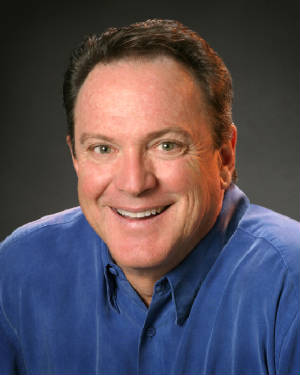 About seventy years ago, George Orwell said that Christianity would suffer in the latter Twentieth Century, because while we were good at instilling a fear of hell, whenever we trod anywhere near heaven, we turned vague and elusive. Look it up: he repeats it several times in All Art Is Propaganda. When I first read that, I didn’t know what he meant, but as I grow older and more mature in my faith, I see it displayed around me every day.
About seventy years ago, George Orwell said that Christianity would suffer in the latter Twentieth Century, because while we were good at instilling a fear of hell, whenever we trod anywhere near heaven, we turned vague and elusive. Look it up: he repeats it several times in All Art Is Propaganda. When I first read that, I didn’t know what he meant, but as I grow older and more mature in my faith, I see it displayed around me every day.Too often, unfortunately, we don’t know what we believe. We have grown accustomed to Christmas pageants featuring fifth grade girls in liturgical robes, pretending to be angels and proclaiming, “Do not be afraid.” Afraid of what? Indeed, we fear too little, and enjoy too little, and so much of what we call piety is an accrued shell of cultural mess. Because of that, we don’t really live, because we feel we have little to live for.
We Christians are moving into a season when we celebrate the humble birth of a King who came not to be served, but to serve. We celebrate His calling to exalt the poor, restore hope to the broken, and make ourselves an image of the God we proclaim. Yet looking around our churches, I see that enacted all too infrequently. We try to lure converts with highly programmed liturgy and a “worship high,” when the world really wants to see us live what we believe.
Nor do I hold myself exempt from that. I know I talk a much better game than I live. And an important part of that comes about because I’ve never successfully stated what I really believe.
Christian humorist and motivational speaker Ken Davis hits many of the right notes in his latest exhortation. By zeroing in on the ways in which we hold ourselves back from the life God made available to us in Jesus Christ, he makes a convincing case that we do our professed faith injustice when we live half-alive. But I think he tries to do too much, and parts of his book aren’t nearly as strong and confident as other parts.
 In his early sixties, Davis, who has been making people laugh for the Lord for decades, had a real “come to Jesus” moment when he saw a photograph of himself on the beach with his granddaughter. By then, he had ballooned to over 240 pounds, and his physical and mental health were in a spiral. He knew that, if he wanted to enjoy his grandchildren, he needed to get back on track, or else he was going to die.
In his early sixties, Davis, who has been making people laugh for the Lord for decades, had a real “come to Jesus” moment when he saw a photograph of himself on the beach with his granddaughter. By then, he had ballooned to over 240 pounds, and his physical and mental health were in a spiral. He knew that, if he wanted to enjoy his grandchildren, he needed to get back on track, or else he was going to die.Davis embarked on a journey intended not only to restore his health, but to reconnect him to the Source of all life and meaning. He spends several chapters detailing the processes he took to regain control of his body, and all the ways in which his life is improved now that his “Temple of the Lord” is capable of greater acts of worship. Looking back, I wish he’d written a spiritual memoir of his health; I would have enjoyed that book.
Instead, Davis tries to tackle the whole Christian experience, and all the ways in which our short-sighted choices cut us off from the source of real life. And because Davis attempts so much, he accomplishes too little. Whole chapters have a stultifying vagueness that saps them of their vigor. Make new friends? Shed the baggage that holds you back? These are easier said than done, and they lack the specificity that makes Davis’ health-related chapters so electric.
Davis essentially spreads himself too thin, and in the process, he trots out the superficial vagueness that has become Christianity’s tragic hallmark. While he dissects the mistakes all Christians make when we try to go it alone, his solutions too often turn into bland bromides. I really wish he’d stuck with the health memoir. “I started out here, did this to correct, and learned these lessons.” Those are the best, and also most specific, parts of his book.
Early on, Davis quotes Saint Irenaeus, one of the post-apostolic Church Fathers, who wrote: “God’s glory is the earthly creature made fully and eternally alive with the life of the Spirit.” Davis makes this the thesis of his book, and returns to this point several times. I couldn’t agree more. But because Davis tries to address too many parts of life, few of them appear full. I like Davis’ point, but his execution falls short of his effusion.
No comments:
Post a Comment